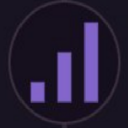-
 Bitcoin
Bitcoin $88,629.0112
1.53% -
 Ethereum
Ethereum $1,633.3416
0.24% -
 Tether USDt
Tether USDt $1.0000
0.01% -
 XRP
XRP $2.0979
-1.08% -
 BNB
BNB $605.5535
0.62% -
 Solana
Solana $140.2764
0.66% -
 USDC
USDC $1.0000
0.01% -
 Dogecoin
Dogecoin $0.1643
1.41% -
 TRON
TRON $0.2438
0.47% -
 Cardano
Cardano $0.6391
-0.43% -
 Chainlink
Chainlink $13.4401
-0.21% -
 Avalanche
Avalanche $20.3874
-0.96% -
 UNUS SED LEO
UNUS SED LEO $8.8373
-2.11% -
 Stellar
Stellar $0.2496
-3.26% -
 Sui
Sui $2.3313
3.08% -
 Shiba Inu
Shiba Inu $0.0...01260
-0.18% -
 Hedera
Hedera $0.1732
1.55% -
 Toncoin
Toncoin $2.9117
-3.34% -
 Bitcoin Cash
Bitcoin Cash $346.5808
1.81% -
 Hyperliquid
Hyperliquid $18.4964
3.15% -
 Litecoin
Litecoin $79.8162
-0.77% -
 Polkadot
Polkadot $3.7801
-3.27% -
 Dai
Dai $1.0000
0.00% -
 Bitget Token
Bitget Token $4.4558
-0.32% -
 Ethena USDe
Ethena USDe $0.9992
0.01% -
 Pi
Pi $0.6369
0.62% -
 Monero
Monero $217.7312
1.28% -
 Pepe
Pepe $0.0...08147
2.99% -
 Uniswap
Uniswap $5.4346
0.09% -
 Aptos
Aptos $4.9660
-4.00%
How to redeem tokens in Trust Wallet?
Redeeming tokens in Trust Wallet varies by token; always verify legitimacy and follow official instructions to avoid scams and loss of funds.
Mar 30, 2025 at 12:01 pm
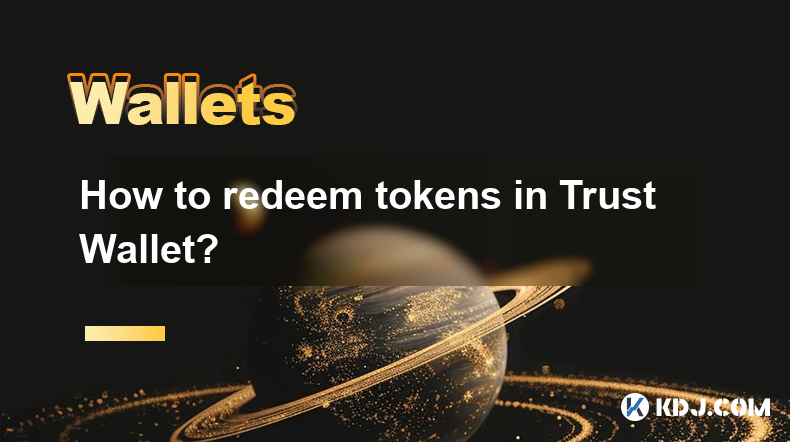
Understanding Token Redemption
Redeeming tokens in Trust Wallet depends heavily on the specific token and its underlying contract. There's no single, universal method. Some tokens might require interacting directly with a decentralized application (dApp), while others might involve a simple transfer to an exchange. Before attempting to redeem any token, always verify its legitimacy and the instructions provided by the token's creators or official channels. Failure to do so could lead to loss of funds. Always double-check the contract address and the legitimacy of the platform before proceeding.
Identifying Your Token's Redemption Method
The first step is understanding how your specific token is redeemed. Many tokens don't have a "redemption" process in the traditional sense. Instead, they might be used within a specific ecosystem, traded on decentralized exchanges (DEXs), or swapped for other cryptocurrencies. Consult the token's whitepaper or official website for detailed instructions on how to redeem or utilize your tokens. This document should outline the process clearly. If no official documentation is available, proceed with extreme caution.
Redeeming Tokens Through a Decentralized Exchange (DEX)
Many tokens are traded on decentralized exchanges like Uniswap, PancakeSwap, or SushiSwap. To redeem your tokens via a DEX, you'll first need to connect your Trust Wallet to the chosen DEX. This usually involves opening the DEX within your Trust Wallet's DApp browser. Ensure you're using the official DEX website and not a fraudulent imitation. Once connected, you can trade your tokens for other cryptocurrencies, such as ETH or stablecoins like USDT or USDC.
- Open the DApp browser in Trust Wallet.
- Navigate to the chosen DEX (e.g., Uniswap).
- Connect your Trust Wallet to the DEX.
- Select the token you wish to trade.
- Choose the cryptocurrency you want to receive in exchange.
- Confirm the transaction.
Redeeming Tokens Through a Centralized Exchange (CEX)
Some tokens might be listed on centralized exchanges (CEXs) like Binance, Coinbase, or Kraken. If this is the case, you'll need to transfer your tokens from your Trust Wallet to the exchange. Be absolutely certain of the correct token address before initiating any transfer. Sending tokens to the wrong address will result in irreversible loss. Once your tokens are on the exchange, you can sell them for fiat currency or other cryptocurrencies.
- Create an account on the chosen CEX.
- Find the deposit address for your specific token on the CEX.
- Transfer your tokens from your Trust Wallet to the CEX deposit address.
- Wait for the transaction to confirm.
- Once confirmed, you can sell your tokens on the exchange.
Redeeming Tokens Directly with a Project
Some projects might have a specific redemption mechanism on their own platform or website. This could involve interacting with a smart contract directly through a dApp or submitting a redemption request through their official website. Thoroughly research the project and verify the legitimacy of their website or dApp before interacting with them. Always check for secure HTTPS connections and verify the website's authenticity.
- Visit the project's official website.
- Locate the redemption instructions or portal.
- Follow the instructions carefully and provide any required information.
- Confirm the transaction.
Understanding Gas Fees
When interacting with smart contracts or decentralized exchanges, you'll need to pay transaction fees, often called "gas fees." These fees vary depending on the network's congestion. Be aware of the gas fees before confirming any transaction to avoid unexpected costs. High gas fees can significantly impact the profitability of your redemption.
Security Best Practices
Always prioritize security when redeeming tokens. Never share your private keys or seed phrase with anyone. Use a strong password and enable two-factor authentication (2FA) whenever possible. Only interact with verified websites and dApps to avoid scams and phishing attempts. Regularly back up your Trust Wallet and keep your software updated.
Frequently Asked Questions
Q: What if I can't find information on how to redeem my tokens?
A: If you can't find information on redeeming your tokens through official channels, it's highly recommended to proceed with caution. Consider reaching out to the project's support team or community forum for assistance. If you're unable to find reliable information, it might indicate a problem with the token itself.
Q: What are the risks associated with redeeming tokens?
A: Risks include scams, phishing attacks, high gas fees, and irreversible token loss due to errors in addresses or transactions. Always double-check addresses and transactions before confirming them.
Q: Can I redeem all tokens in Trust Wallet?
A: No. Trust Wallet supports a vast number of tokens, but the redemption process varies significantly depending on the token itself. Some tokens might not have a redemption mechanism at all.
Q: What should I do if I suspect a scam?
A: If you suspect a scam, immediately cease all interactions with the suspicious entity. Do not share your private keys or seed phrase. Report the scam to the relevant authorities and the Trust Wallet support team.
Q: How do I know if a DEX or dApp is legitimate?
A: Look for official website links and community presence. Check reviews and ratings from trusted sources. Avoid interactions with platforms that lack transparency or have a history of questionable activity. Always verify contract addresses.
Disclaimer:info@kdj.com
The information provided is not trading advice. kdj.com does not assume any responsibility for any investments made based on the information provided in this article. Cryptocurrencies are highly volatile and it is highly recommended that you invest with caution after thorough research!
If you believe that the content used on this website infringes your copyright, please contact us immediately (info@kdj.com) and we will delete it promptly.
- From a Coin That Wasn't Supposed to Exist to Another That Got Melted Down
- 2025-04-22 21:00:12
- 3 Cryptos to Buy Now Before Parabolic Gains Hit
- 2025-04-22 21:00:12
- Coinbase Derivatives launches XRP-Future contracts, approved by the American Commodity Futures Trading Commission (CFTC)
- 2025-04-22 20:55:13
- Amp (AMP) price prediction: Can this token continue its bullish run?
- 2025-04-22 20:55:13
- Trump Establishes a Limited Bitcoin Strategic Reserve via Executive Order
- 2025-04-22 20:50:12
- Meme Coin Did Not Ruin This Cycle, But Instead Accelerated the Maturity of the Industry as a Market Catalyst
- 2025-04-22 20:50:12
Related knowledge
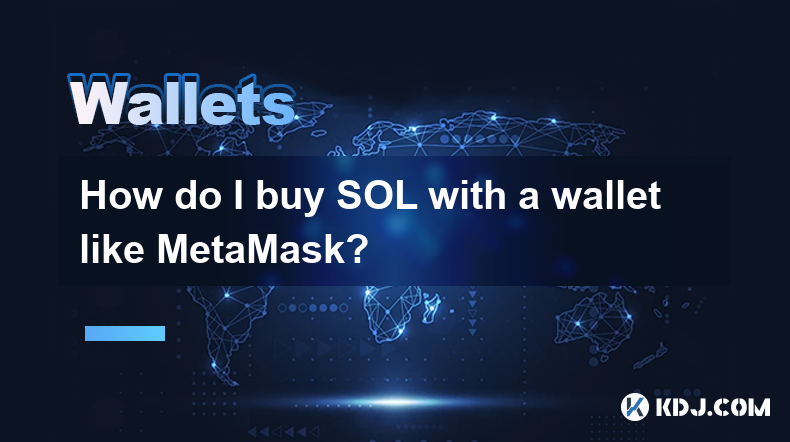
How do I buy SOL with a wallet like MetaMask?
Apr 20,2025 at 01:35pm
How do I Buy SOL with a Wallet Like MetaMask? Purchasing Solana (SOL) using a wallet like MetaMask involves a few steps, as MetaMask primarily supports Ethereum and Ethereum-based tokens. However, with the help of decentralized exchanges (DEXs) and some intermediary steps, you can acquire SOL. This article will guide you through the process in detail. S...
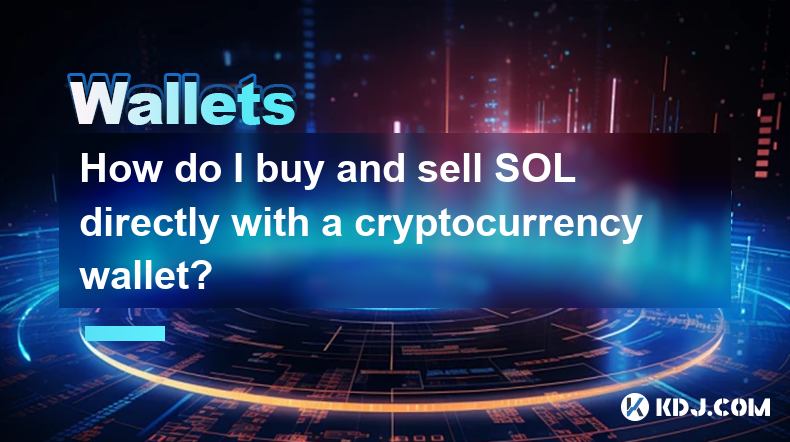
How do I buy and sell SOL directly with a cryptocurrency wallet?
Apr 19,2025 at 05:35pm
Introduction to Buying and Selling SOL with a Cryptocurrency WalletBuying and selling Solana (SOL) directly from a cryptocurrency wallet offers a convenient and secure way to manage your digital assets. Cryptocurrency wallets are essential tools for anyone looking to interact with the Solana blockchain. They allow you to store, send, and receive SOL wit...
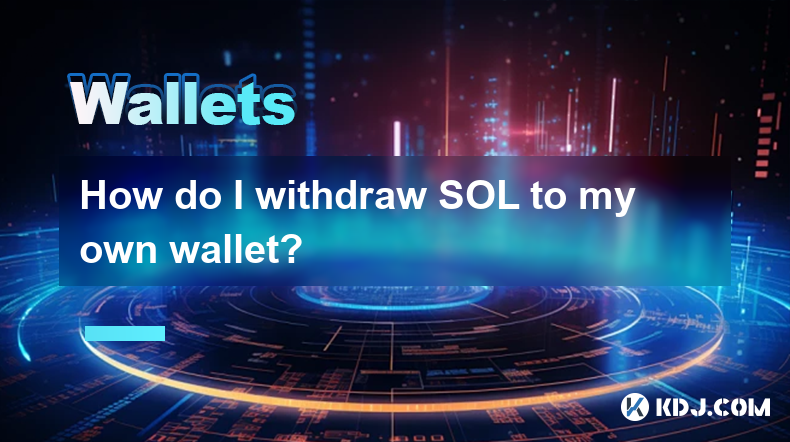
How do I withdraw SOL to my own wallet?
Apr 20,2025 at 04:21pm
Introduction to Withdrawing SOL to Your Own WalletWithdrawing Solana (SOL) to your own wallet is a straightforward process, but it requires careful attention to detail to ensure that your funds are transferred safely and efficiently. SOL is the native cryptocurrency of the Solana blockchain, known for its high throughput and low transaction fees. Whethe...
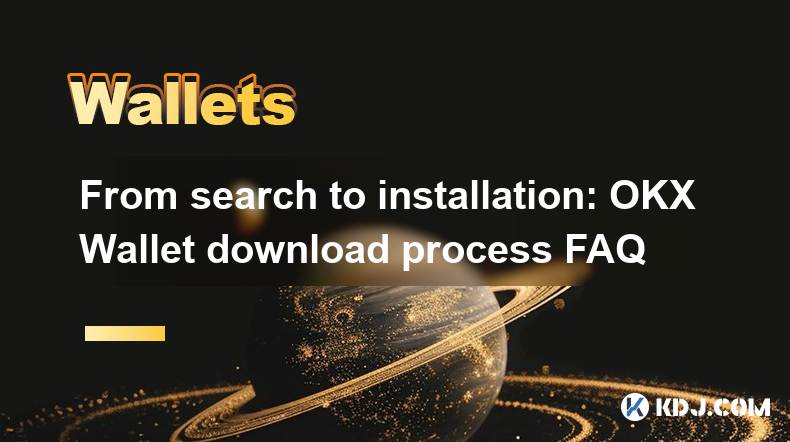
From search to installation: OKX Wallet download process FAQ
Apr 17,2025 at 02:00pm
The OKX Wallet is a popular choice among cryptocurrency enthusiasts for managing their digital assets securely and efficiently. Understanding the process from searching for the wallet to its installation can be crucial for new users. This article will guide you through the entire process, providing detailed steps and answers to frequently asked question...
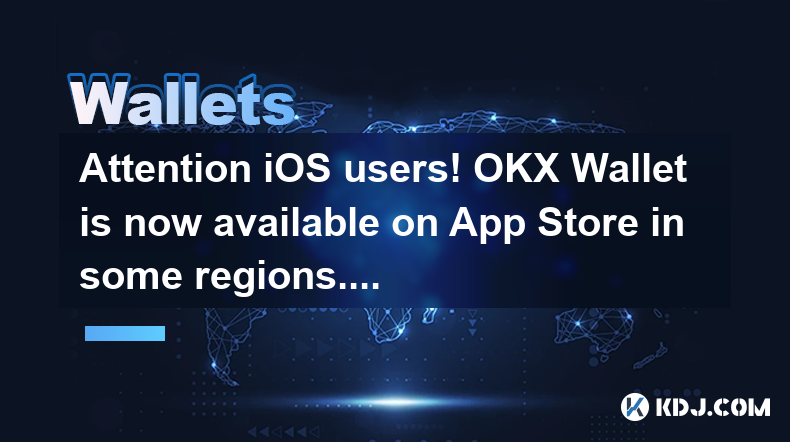
Attention iOS users! OKX Wallet is now available on App Store in some regions. How to check its availability?
Apr 20,2025 at 05:21pm
Attention iOS users! OKX Wallet is now available on App Store in some regions. If you're eager to check its availability and start using this versatile cryptocurrency wallet, follow our detailed guide. We'll walk you through the steps to confirm if OKX Wallet is accessible in your region, and provide insights into its features and benefits. Checking OKX...
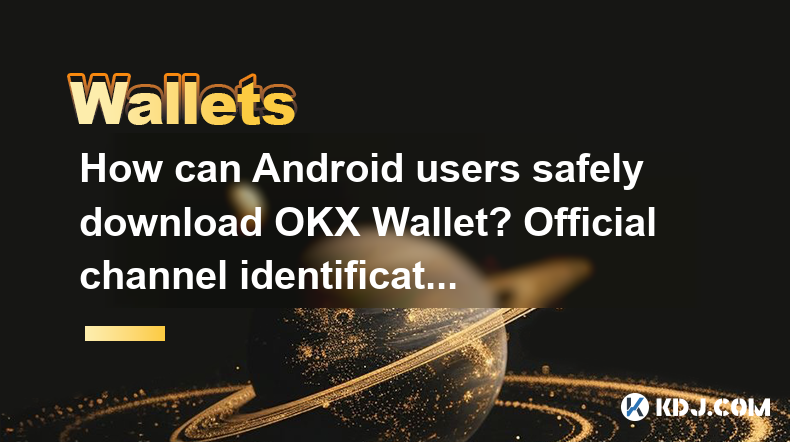
How can Android users safely download OKX Wallet? Official channel identification guide
Apr 19,2025 at 10:50pm
How can Android users safely download OKX Wallet? Official channel identification guide Ensuring the safety and security of your cryptocurrency assets begins with downloading apps from trusted sources. For Android users interested in using OKX Wallet, it's crucial to identify and use the official channels to avoid downloading malicious software. This gu...

How do I buy SOL with a wallet like MetaMask?
Apr 20,2025 at 01:35pm
How do I Buy SOL with a Wallet Like MetaMask? Purchasing Solana (SOL) using a wallet like MetaMask involves a few steps, as MetaMask primarily supports Ethereum and Ethereum-based tokens. However, with the help of decentralized exchanges (DEXs) and some intermediary steps, you can acquire SOL. This article will guide you through the process in detail. S...

How do I buy and sell SOL directly with a cryptocurrency wallet?
Apr 19,2025 at 05:35pm
Introduction to Buying and Selling SOL with a Cryptocurrency WalletBuying and selling Solana (SOL) directly from a cryptocurrency wallet offers a convenient and secure way to manage your digital assets. Cryptocurrency wallets are essential tools for anyone looking to interact with the Solana blockchain. They allow you to store, send, and receive SOL wit...

How do I withdraw SOL to my own wallet?
Apr 20,2025 at 04:21pm
Introduction to Withdrawing SOL to Your Own WalletWithdrawing Solana (SOL) to your own wallet is a straightforward process, but it requires careful attention to detail to ensure that your funds are transferred safely and efficiently. SOL is the native cryptocurrency of the Solana blockchain, known for its high throughput and low transaction fees. Whethe...

From search to installation: OKX Wallet download process FAQ
Apr 17,2025 at 02:00pm
The OKX Wallet is a popular choice among cryptocurrency enthusiasts for managing their digital assets securely and efficiently. Understanding the process from searching for the wallet to its installation can be crucial for new users. This article will guide you through the entire process, providing detailed steps and answers to frequently asked question...

Attention iOS users! OKX Wallet is now available on App Store in some regions. How to check its availability?
Apr 20,2025 at 05:21pm
Attention iOS users! OKX Wallet is now available on App Store in some regions. If you're eager to check its availability and start using this versatile cryptocurrency wallet, follow our detailed guide. We'll walk you through the steps to confirm if OKX Wallet is accessible in your region, and provide insights into its features and benefits. Checking OKX...

How can Android users safely download OKX Wallet? Official channel identification guide
Apr 19,2025 at 10:50pm
How can Android users safely download OKX Wallet? Official channel identification guide Ensuring the safety and security of your cryptocurrency assets begins with downloading apps from trusted sources. For Android users interested in using OKX Wallet, it's crucial to identify and use the official channels to avoid downloading malicious software. This gu...
See all articles





















































































